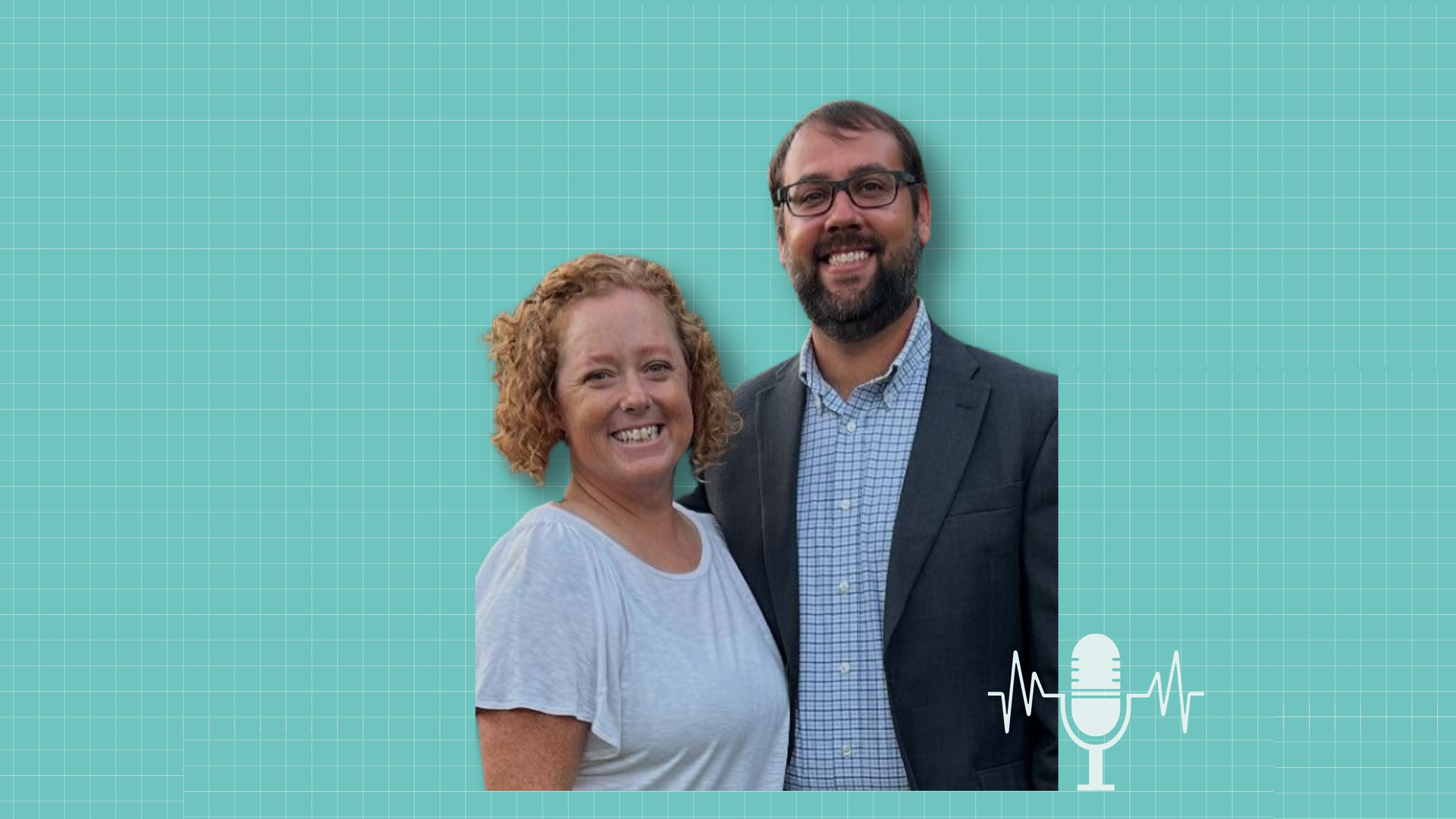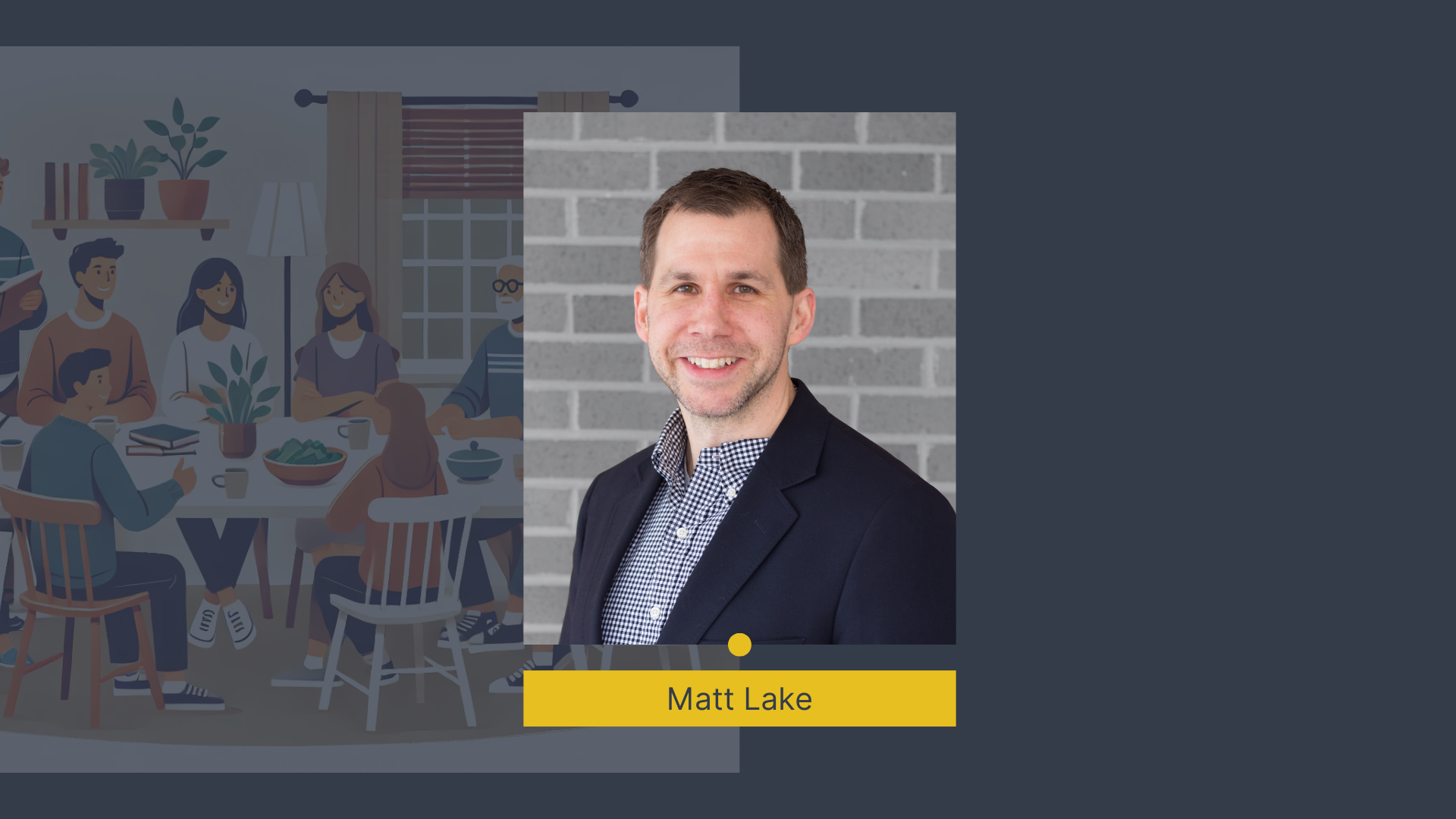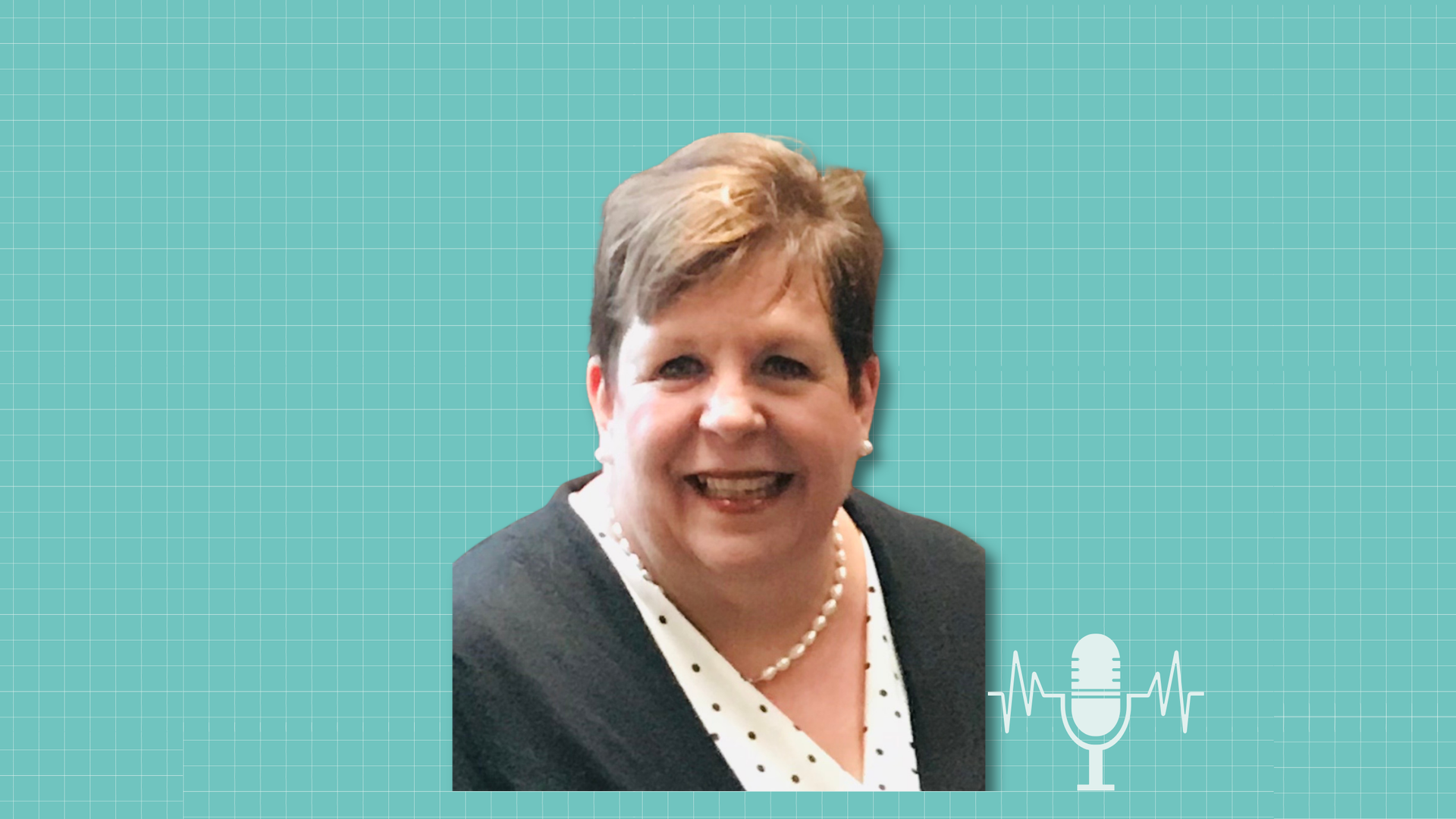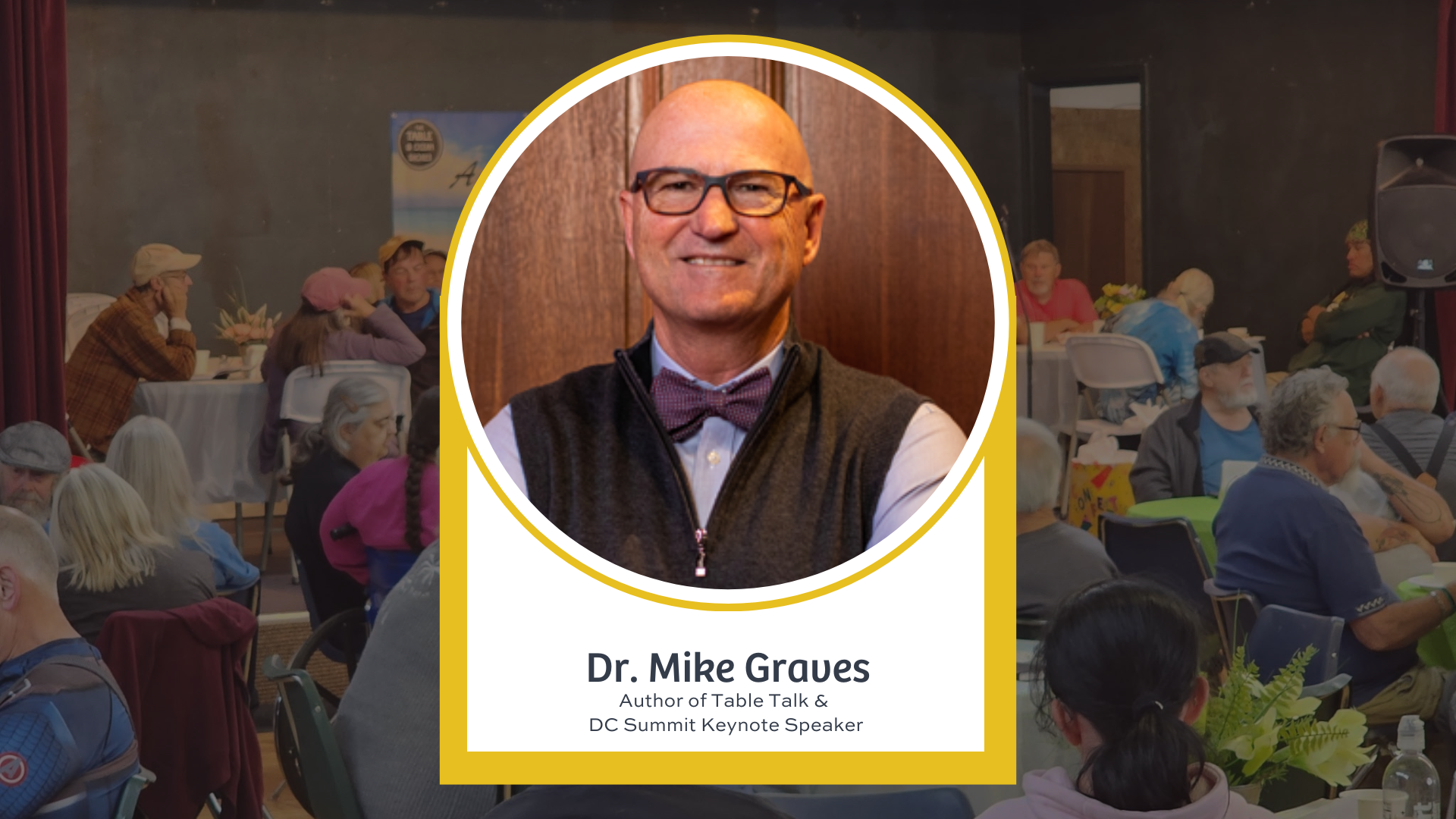Calling, Renewal, and Healthy Ministry
Listen
Watch
Show Notes
Retired pastor and ministry coach Dave Peppler shares lessons from over 20 years in rural ministry, from guiding a congregation through closure to helping churches rediscover their unique calling. He offers practical insights on pastoral health, the value of bi-vocational ministry, and trusting that the God who calls is always sufficient to equip.
Dave Peppler is a retired pastor with more than 22 years of ministry in North Carolina and Virginia. He holds advanced degrees in spirituality, Christian education, leadership, and theology. The author of Healthy Endings: A Leader’s Journey Through a Church Legacy Transition, he now serves as a spirituality coach, retreat leader, church consultant, and Christian leadership coach, helping individuals and faith communities discover and live out their unique calling in Christ.
Help us spread the word about the Rural Renewal podcast by subscribing and leaving us reviews on Apple Podcasts, Spotify, YouTube or wherever you enjoy your podcasts.
Related Resources:
The Still Small Voice in the Deer Stand – Christianity Today
Join our Facebook group: Rural Renewal Podcast Community
Email us: podcasts@freshexpressions.com
Retired pastor and ministry coach Dave Peppler shares lessons from over 20 years in rural ministry, from guiding a congregation through closure to helping churches rediscover their unique calling. He offers practical insights on pastoral health, the value of bi-vocational ministry, and trusting that the God who calls is always sufficient to equip.
Dave Peppler is a retired pastor with more than 22 years of ministry in North Carolina and Virginia. He holds advanced degrees in spirituality, Christian education, leadership, and theology. The author of Healthy Endings: A Leader’s Journey Through a Church Legacy Transition, he now serves as a spirituality coach, retreat leader, church consultant, and Christian leadership coach, helping individuals and faith communities discover and live out their unique calling in Christ.
Help us spread the word about the Rural Renewal podcast by subscribing and leaving us reviews on Apple Podcasts, Spotify, YouTube or wherever you enjoy your podcasts.
Related Resources:
The Still Small Voice in the Deer Stand – Christianity Today
Join our Facebook group: Rural Renewal Podcast Community
Email us: podcasts@freshexpressions.com
Interview Summary
Believe that the God who called you hasn’t left you. Believe that the God who called you is still calling you.
— Dave Peppler
On the latest episode of the Rural Renewal Podcast, hosts Chris and Kathleen Blackey sat down with Dave Peppler, founder of Pep Talk Ministries. With over two decades of experience as a rural pastor, interim leader, and ministry coach, Dave has a heart for supporting pastors and congregations navigating seasons of challenge and change. His message is both realistic and deeply hopeful: God is still at work in rural churches, and fresh possibilities can emerge when leaders stay grounded in their calling.
From Pastor to Pep Talk Ministries
Dave served in traditional church settings for 22 years before sensing God’s call to something new. That call gave birth to Pep Talk Ministries, a work dedicated to coaching, consulting, and walking alongside pastors and congregations.
“I refuse to give up on the local church, even though a lot of it is dying.”
In addition to retreats, coaching, and consulting, Dave now also trains interim pastors—a growing need across many denominations. His grassroots approach emphasizes listening deeply to people, discerning identity, and rekindling purpose.
The Reality of Isolation in Rural Ministry
One of Dave’s central insights comes from his own years serving in small towns. He acknowledges the painful sense of isolation many pastors feel.
“The whole feeling of being on an island is real. Even more so for a ministry spouse.”
The solution, he insists, is intentional connection: building relationships beyond denominational lines, making space for priority management (not just time management), and resisting the pull toward burnout.
Rekindling Identity and Innovation
Too many rural churches, Dave notes, cling to outdated models without pausing to ask what God is calling them to now. He encourages congregations to rediscover their unique identity and experiment with fresh approaches.
“God didn’t call you to become someone else. God called you to do something else.”
Dave shared stories of congregations that shifted from longing for children who weren’t in their community to creatively reaching seniors who were. Renewal, he argues, is less about becoming “something else” and more about faithfully exploring what new things God might do through the people who are already there.
Bivocational Ministry and the Power of Perspective
Dave also addressed the shifting landscape of bivocational and co-vocational ministry. Once seen as a sign of weakness, bivocational leadership is now increasingly recognized as a gift.
“Where in God’s word has there ever been two or three gathered that God didn’t support? … You are sufficient. You are adequate. You are called.”
Instead of seeing themselves as “second-rate,” Dave calls pastors and churches to embrace the value of engaging the wider community through multiple vocations. Like the Apostle Paul making tents, pastors can model faithfulness in everyday work while expanding their kingdom witness.
Encouragement for the Struggling Pastor
At the heart of Dave’s message is encouragement for weary leaders:
“It’s not your role to overfunction and burn out. It’s your role to be faithful to what God has called you to do as you’re able.”
Rural ministry may feel small, unseen, or under-resourced, but Dave reminds pastors that their calling is valid, their presence matters, and God is not finished with them or their communities.
Dave Peppler’s story and insights shine a light of hope for rural pastors and churches alike. Ministry may look different today than it did in past decades, but God continues to call, equip, and celebrate His people. Whether through innovative expressions, bivocational work, or simply showing up faithfully, rural churches can still thrive as vital witnesses of Christ’s love.
Reflection Questions
- How do Dave’s experiences of rural ministry resonate with your own context or church experience?
- What are some ways you’ve experienced isolation in ministry, and how have you sought connection?
- How does your church currently define its unique identity and sense of calling?
- How do you balance your calling with your personal identity, keeping them connected but not confused?
- What practices help you remember that your highest calling is to connect with God?
- Dave says, “God didn’t call you to become someone else, but to do something else.” How does that challenge or encourage you?
- What would it look like for you—or your church—to live more fully out of the conviction that “you are sufficient, you are called, and you are celebrated”?














